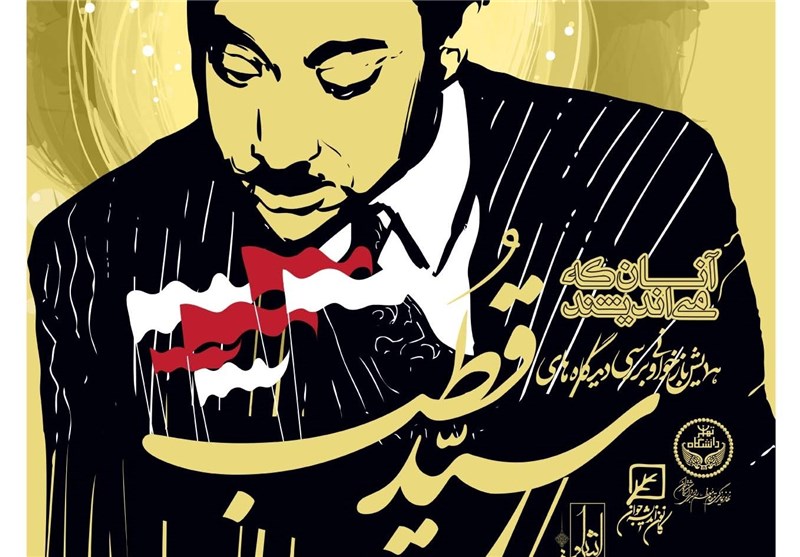
In Honor of Distinguished ASF Board Member & Treasurer Robert Shasha, who received the “Inspired Leadership and Lifetime Achievement Awards” this week at ISEF’s 45th Anniversary Gala in recognition of his long-time service as a trustee, supporter, and co-chair of the Investment Committee. Robert “believes in the mission of ISEF to empower the needy youth of Israel to better themselves and to contribute to our world through education.” Mazal tov/Mabrouk!
Click here to dedicate a future issue in honor or memory of a loved one

The American Sephardi Federation’s Sephardi Ideas Monthly is a continuing series of essays and interviews from the rich, multi-dimensional world of Sephardi thought and culture that is delivered to your inbox every month.
Sephardi Ideas Monthly has recently been exploring the theological-political developments that are helping to reshape political alliances across the Middle East and North Africa (MENA). In March we examined the Marrakesh Declaration, a 2016 assertion of Islamic tolerance that stands opposed to Sayyid Qutb’s explosive vision (treated in April) of religious revolution and Islamist supremacy. And last month we dove deeper into Egypt, the birthplace of the Muslim Brotherhood, with the Egyptian writer, Tarek Heggy.

This month, Sephardi Ideas Monthly traces the little-known but very consequential line of influence that transcends the traditional Sunni-Shi’a divide and connects Sayyid Qutb to the Islamic Republic of Iran (IR). Qutb met with and encouraged Iranian revolutionaries and his writings played an important role in the Iranian Islamist revolution.
The current Supreme Leader of Iran, Ali Khamenei, translated four of Qutb’s books into Persian! One scholar summed up the issue concisely: “The influence of Sayyid Quṭb on the Islamist movement and the revolutionaries of Iran is still not acknowledged sufficiently and remains largely unknown in the West.” (See: “Sayyid Quṭb in Iran: Translating the Islamist Ideologue in the Islamic Republic.” Yusuf Ünal, Journal of Islamic and Muslim Studies, Vol. 1, No. 2 (November 2016), pp. 35-50).
Qutb’s connection to Shi’ite activists dates back to the early 50s, when Iranian cleric Navvab Safavi, leader of the Iranian “Fedayeen of Islam,” visited him in Egypt. Safavi was impressed by Qutb, took his ideology back to Iran, and promoted the vision of an Islamic state among Iranian revolutionaries. Translations of Quṭb’s works soon followed. In many cases, the Persian-language translators were also activists who went on to play important roles in the Iranian revolution, the most prominent being Safavi’s student, Khamenei. Among the books that Khamenei translated was, The Future of This Religion, a work in which Quṭb:
…argues for the political supremacy of Islam, which will lead to the future submission of all humanity to Islamic ideology, and calls upon all Muslims to fight against the imperialist powers.
In order to honor Qutb’s thought and influence, in 1985 the Iranian regime’s postal service issued a stamp showing Qutb behind bars during his 1966 trial in Egypt. That trial ended in Qutb’s hanging.
It’s true that, in recent years, Qutb’s writings have inspired revolutionary Sunni jihadi groups that mercilessly target Shi’a. The difficulty in reconciling Qutb’s influence on both the Iranian revolution and anti-Shi’ite jihadis was examined at a February, 2015, conference held in Iran dedicated to “Re-reading and Re-viewing the Views of Sayyid Quṭb” (See Unal, p. 36). The willingness to re-engage with Qutb’s writings in such a charged geo-political context testifies to the depth of their impact in the IR. In addition, it’s important not to overstate the problem: other Sunni Islamist groups influenced by Qutb are more than happy to maintain positive relations with the Iranian regime, the most obvious example being Hamas.
Why isn’t the Qutb-Iran connection more well-known among Western observers of the MENA region? Perhaps the answer is connected to a related question: How is it that there isn’t a single English-language biography of Khamenei? Sometimes written off as “the chief apparatchik backed by the Iranian deep state” Khamenei has ruled Iran for thirty-three years. That’s a long time in a very unstable region. It’s reasonable to wonder if Khamenei is more competent than often perceived, and if his political acumen is connected to Qutb’s influence. Either way, if we wish to prepare for an extended conflict with the forces of Political Islam, it would be prudent to wonder how much of the revolutionary energy that animates portions of the Iranian regime is still being generated by its encounter with Qutb.
For further reading and viewing:
“From Sayyad Qutb to Seyyed Khamenei: The Islamist Challenge of Modernity”
Professor Abbas Milani, the Hamid & Christina Moghadam Director of Iranian Studies at Stanford University, makes the case for Sayyid Qutb as the most important thinker of Islamism and Ali Khamenei as the most consequential practitioner of Islamism while pointing to the “confluence of interest between these two… very important figures.” Beginning at 46:25, Milani examines the “remarkably antisemitic language” of Qutb and Khamenei and the view that modernity is a Jewish invention devised to lure Muslims away from their salvation.
“Iran’s Islamic Republic and the Muslim Brotherhood”
Mohammed Amr, a researcher focused on the Ikhwan, explains how “the Shi’i ruling clergy of Iran and the Sunni Muslim Brotherhood… have much in common.” Putting the Qutb-Khamenei connection at the root of the relationship, Amr notes three commonalities, “[E]stablishing an Islamic state where religious law, the shari’a, must prevail as comprehensive governing system for the individual and society…; advancing pan-Islamism to try to unify the whole umma (Muslim community) and replace the international order of states; and a virulent hatred of the West, undergirded by conspiracy theories, notably antisemitism.”
~~~~~~~

The American Sephardi Federation invites all individuals, communities, and organizations who share our vision & principles to join us in signing the American Sephardi Leadership Statement!
Please also support the ASF with a generous, tax-deductible contribution so we can continue to cultivate and advocate, preserve and promote, as well as educate and empower!
Make checks payable to “American Sephardi Federation” @ 15 West 16th Street, New York, NY, 10011.
Email us at info@americansephardi.org if you are interested in discussing donating securities or planned giving options with a financial professional from AllianceBernstein.
~~~~~~~
The Monthly Sage החכם החודשי

The sage for the month of June, 2022, is Hakham Abraham Halevi (1659-1712).
Born in 1659 in Egypt, young Abraham learned in his father’s Yeshiva in the town of Rosetta, Egypt (today Rashid). After his father went up to settle in Jerusalem, Hakham Abraham assumed his station as Rosh Yeshiva. He also merited to settle in Jerusalem, where he passed away in 1712. The date of Hakham Abraham’s passing isn’t known and is therefore commemorated on the 7th of Adar, the traditional dating of Moses’ passing, the idea being that all of Israel’s sages potentially existed in the soul of Moses.
An important legal scholar during his lifetime, Hakham Abraham Halevi’s posthumously published collection of Responsa, Ginat Vradim (“A Rose Garden”), remains an influential book in the halakhic tradition.
In the following passage from Ginat Vradim, Hakham Abraham Halevi adds to our understanding of why Jews honor each other in the synagogue. It’s not only a matter of honoring the person. Deference is given to one who is set to perform a mitzvah (commandment). In other words, we are honoring the fulfillment of the commandment, as well:
When two people are fulfilling a commandment, and one has already fulfilled it while the second is about to do so, it is appropriate to give priority to honoring the one who is about to fulfill the commandment over the one who has already done so. For example, a person who has finished reading the Torah and goes to sit in his place while another congregant is coming up to read, each of the two being as worthy as the other and of equal standing, it is appropriate that the one who has already read and is descending to defer and make way for the passage of the one being called up to the Torah reading, for the one descending from the teiva [synagogue platform] has already performed and fulfilled the reading commandment, while the one being called up to read has yet to read, and so is to be honored and to be given precedence.
~~~~~~~

Iraq’s Last Jews: Stories of Daily Life, Upheaval, and Escape from Modern Babylon
Edited by Tamar Morad, Dennis Shasha, and Robert Shasha
Iraq’s Last Jews, a National Jewish Book Award Finalist, is a collection of first-person accounts about the once-vibrant, 2,500 year-old Babylonian Jewish community and its disappearance in the middle of the 20th century. This book tells the story of the last generation of Iraqi Jews, who both reminisce about their birth country and describe the persecution that drove them out, the result of Nazi influences, growing Arab nationalism, and anger over the re-birth of the State of Israel.
By Dr. Hélène Jawhara Piñer, a 2018 ASF Broome & Allen Fellow
In this extraordinary, award-winning and best-selling cookbook now in its 4th imprint, chef and scholar Hélène Jawhara-Piñer combines rich culinary history and Jewish heritage to serve up over fifty culturally significant recipes. Steeped in the history of the Sephardic Jews (Jews of Spain) and their diaspora, these recipes are expertly collected from such diverse sources as medieval cookbooks, Inquisition trials, medical treatises, poems, and literature. Original sources ranging from the thirteenth century onwards and written in Arabic, Spanish, Portuguese, Occitan, Italian, and Hebrew, are here presented in English translation, bearing witness to the culinary diversity of the Sephardim, who brought their cuisine with them and kept it alive wherever they went. Jawhara-Piñer provides enlightening commentary for each recipe, revealing underlying societal issues from anti-Semitism to social order. In addition, the author provides several of her own recipes inspired by her research and academic studies.
Each creation and bite of the dishes herein are guaranteed to transport the reader to the most deeply moving and intriguing aspects of Jewish history. Jawhara-Piñer reminds us that eating is a way to commemorate the past.
~~~~~~~
Upcoming Events or Opportunities
ASF Broome & Allen & ADL Collaborative for Change Fellow Isaac de Castro presents:
Entre Diasporas: Telling the Latin-American Jewish story. Contando la historia judía latinoamericana

Tell your story. Cuenta tu historia.
We’re looking for first-generation Latino Jews in the United States who immigrated because of political and social turmoil. Jews of Sephardic descent from Colombia, Cuba, and Venezuela that now reside in the Miami area will be given priority, but others are welcome to apply as well.
Fill out this form to be considered as an interviewee for this project. After you’ve submitted, we will be in touch promptly to set up a preliminary phone call.
Click here for more information.
===
The ASF Institute of Jewish Experience presents:
Exclusive Authors Series with Joyce Yarrow
Join us for New Works Wednesdays with Joyce Yarrow discussing her new book “Zahara and the Lost Books of Light”!
Wednesday, 6 July at 12:00PM EST
(Complimentary RSVP)
Sign-up Now!

About the book:
Seattle journalist Alienor Crespo travels to Spain to claim the promise of citizenship offered to the descendants of Jews expelled from Spain in 1492. As she relives history through her vijitas (visits) with her ancestors, Alienor also confronts modern-day extremism and commits herself to protecting an endangered “Library of Light” – a hidden treasure trove of medieval Hebrew and Arabic books, saved from the fires of the Inquisition.
About the author:
The author of five novels, Joyce Yarrow was born in the SE Bronx, escaped to Manhattan as a teenager, and today does most of her traveling through her writing.
Joyce has worked as a screenwriter, singer-songwriter, multimedia performance artist, and member of the world music vocal ensemble, Abráce.
She is a Pushcart nominee, whose stories and poems have been widely published. She considers the setting of her books to be characters in their own right and teaches workshops on “The Place of Place in Suspense Writing.”
Click here for more about the book.
Click here for the Spanish edition.
Sponsorship opportunities available:
info@americansephardi.org
===